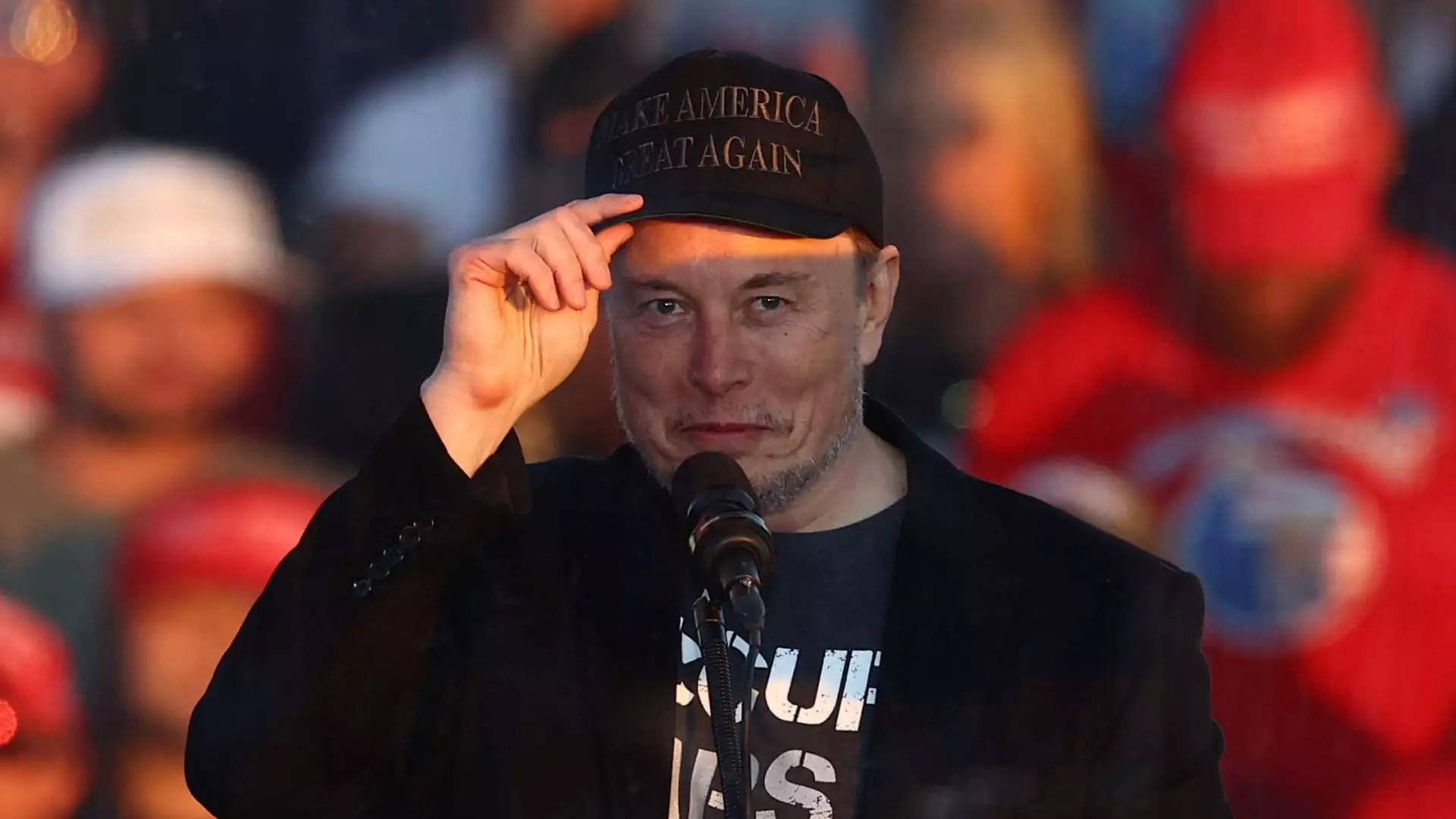Elon Musk, the billionaire CEO of Tesla and SpaceX, is no stranger to controversy. His recent actions—particularly his endorsement of the far-right political party in Germany, the Alternative for Germany (AfD)—have raised eyebrows and ignited heated discussions across the political landscape. This article delves into Musk’s role as an influencer in global politics, examining the implications of his statements and the broader context in which they reside.
Musk’s recent remarks on X, the platform he owns, proclaiming that “only the AfD can save Germany,” signal a disturbing alignment with extreme political ideologies. This endorsement not only aligns Musk with a party that has been criticized for its counterproductive and regressive views but also invites scrutiny of his influence over a substantial online audience—over 200 million followers. Sharing a post from Naomi Seibt, a controversial figure known for her white nationalist sentiments and climate change denial, compounded the gravity of his statement. Seibt’s history of promoting harmful ideologies suggests that Musk’s endorsement might inadvertently lend credence to such views.
Meanwhile, the Democratic Senator Chris Murphy has pointed out that such endorsement is emblematic of an “out of touch billionaire” unfamiliar with the ramifications of his public statements. Murphy’s condemnation of Musk highlights concerns that Musk’s support for the AfD reflects a troubling trend where wealthy influencers align themselves with regressive political movements. The senator’s observations indicate a growing anxiety regarding how billionaire influence can skew democratic processes and ideals, encouraging the rise of extremist parties within Europe.
Musk’s endorsement occurs at a moment of significant political turbulence in Germany. Under Chancellor Olaf Scholz’s leadership, the Social Democrats are grappling with internal instability, leading to the collapse of their left-wing coalition. As the AfD’s popularity surges—currently polling second ahead of looming elections—Musk’s public backing could embolden the party’s anti-establishment platform, further polarizing the political discourse in Germany.
As noted by various observers, the AfD’s electoral strategy focuses heavily on appealing to anti-immigration sentiments and expressing skepticism toward established political institutions. Moreover, their positions have included calls to halt military support for Ukraine and lift sanctions against Russia, stances that resonate with Musk’s previous comments on the geopolitical landscape. This intersection of business, political ideology, and social media influence showcases a concerning trend, where financial power and celebrity culture may intertwine with far-right agendas.
The phenomenon of celebrities endorsing or interacting with political movements is not limited to Musk. Notably, this trend has flourished in recent years, with various public figures leveraging their platforms to promote political causes. Musk’s relationship with figures such as Argentina’s President Javier Milei, an anarcho-capitalist, and Italy’s Prime Minister Giorgia Meloni, represents an alarming crossover where corporate interests and populist political agendas converge.
While Musk’s guidance could inspire a new breed of politically engaged entrepreneurs, it also introduces a risk of further complicating the already blurred lines between democracy and corporatism. His positions and endorsements beg the question: to what extent should individuals with immense influence engage in political discourse, particularly when their views may not align with the normative values of democratic civil society?
As Europe grapples with rising far-right sentiments across various nations, Musk’s influence in this political arena presents both opportunities and challenges. With surges of support for the AfD and similar parties, it is essential to reassess the implications of such endorsements critically. Musk’s vast reach can ignite political movements, for better or worse, and shape public opinion.
Elon Musk’s recent political endorsements illustrate the significant impact of influential figures in contemporary political discourse. As society wrestles with questions of identity, ideology, and electoral equity, the intertwining of business ambition and political influence necessitates a more profound examination. With knowledge comes responsibility; thus, the onus falls on individuals like Musk to understand the societal implications of their comments and actions in an increasingly tumultuous political landscape.


Leave a Reply